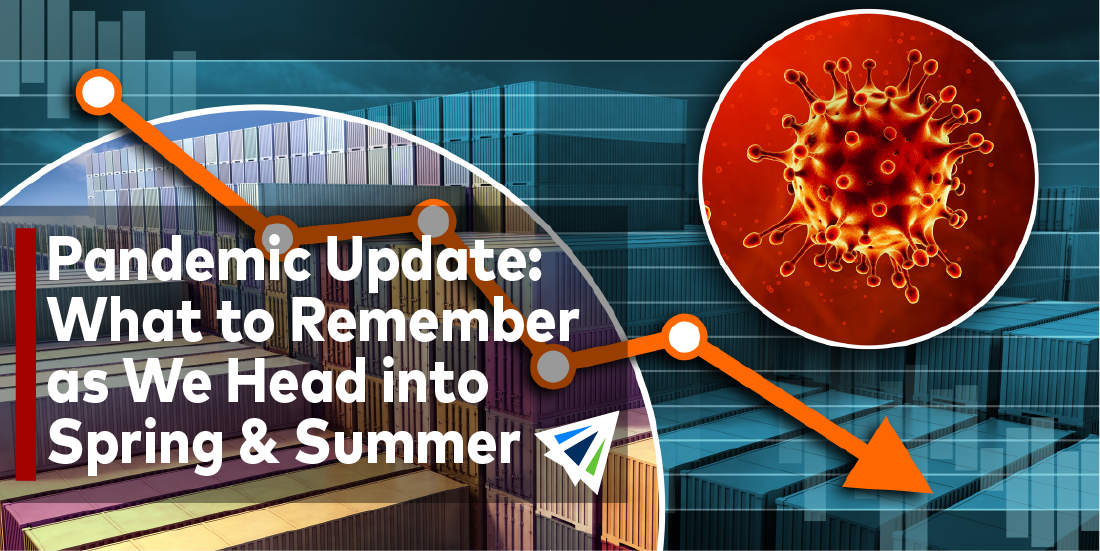There’s no doubt that 2020 took its toll on the shipping industry. Shippers, freight forwarders, and carriers alike were taken through a whirlwind of uncertainty and unprecedented events through the course of the year. While the pandemic resulted in massive shutdowns across the entire world, sending the freight market into a dead stop the first half of 2020, the back half of the year surprised everyone.
All bottlenecks of the first half of 2020 were overshadowed by a massive influx of shipments as fall and winter came. As factories and shippers tried to reconcile the losses of the early half of the year, carriers were put under undue pressure to ship larger volumes in shorter time spans than ever before.
Most of you have probably encountered (or come close to encountering) overbooked vessels, blank sailings, and ridiculously high freight rates.
So, you get it – 2020 was a doozy. We’ve all heard it, we all know it. The question at this point is, what is Spring and Summer of 2021 going to bring to the international shipping industry? Here are a few things to be on the lookout for:
Port Congestion
While we wish there was a quick fix to the effects of the pandemic, the truth is there isn’t. While it is expected that ports will begin to clear up a bit more and the shipping industry will level out a little more, shippers are still attempting to reconcile their losses last year through pushing sales and production this upcoming year.
Remember – the world is still opening up, and as we progress through 2021, chances are high that more and more businesses will begin shipping and many of the same ports we’re familiar with (LA/Long Beach) will continue to experience congestion. Although port workers are attempting to streamline activities and speed things up, you can be sure that no solution will take effect immediately.
High(er) Freight Rates
If you had a lot of shipping activity in the back half of 2020, you probably experienced high freight rates. It’s the natural result of an imbalance between supply and demand. As demand for space skyrocketed when the markets started opening up, so did freight rates as carriers all recognized their leverage over the markets. And it’s not just a profit strategy; it’s also a vessel capacity management tactic.
With the increased demand for production and covering losses of 2020, factories, production facilities, and businesses are almost certain to be shipping more than prior years. You should expect carriers to respond with higher rates to some degree and plan/budget accordingly!
High Need for Strategy
As we navigate this next year, you have to remember that most – both shippers and freight forwarders – are going into a season of uncertainty. No one could have predicted the events of 2020, and likewise, no one knows the full extent to which the last year will affect the upcoming one. So what does that mean? Rather than relying on prior experience, shippers more than ever need forwarders who rely on process and strategy to create a fool-proof method for handling international shipments.
Here’s a news flash – our research and surveying of hundreds of international shippers revealed that shippers continue to switch over the same 4 frustrations over and over. Everyone thinks they’re moving from a bad to a good freight forwarder when they switch, but the truth is that shippers will continue to be disappointed until these 4 issues are solved at the root. It all ties in with strategy and process.
We designed the SHIELD Protocol to solve these exact 4 frustrations, creating proprietary fixes for unmet and unstated expectations, price transparency and accountability, shipment tracking awareness, and the cargo claims process. If you’re interested in learning more, click here or simply reach out to one of our team members and we’d be happy to answer any and all of your questions!
